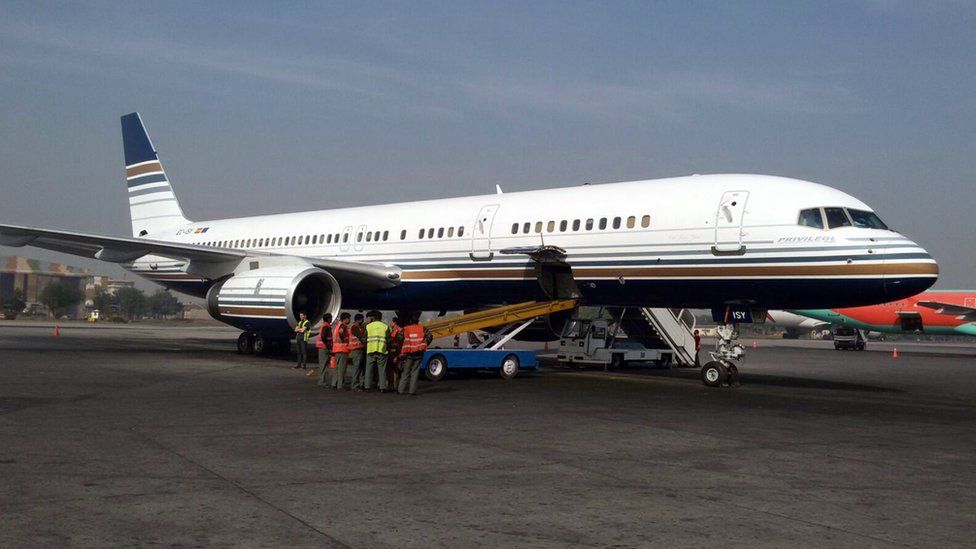Pakistan blocks 30 migrants deported from Greece
- Published

Pakistan has refused entry to 30 migrants deported from Greece, saying their identities could not be verified.
They were among a group flown from Athens to Islamabad on Thursday.
Nineteen verified migrants were allowed to disembark while the rest were flown back to Athens, officials said.
Pakistan is one of the top countries of origin of illegal migrants to Europe, according to statistical institute Eurostat.
Islamabad had suspended its agreement with the European Union to accept repatriation of illegal Pakistani migrants, citing misuse.
However, the dispute was settled last week after meetings with the EU Commissioner for Migration Dimitris Avramopoulos.
'Laws violated'
The EU's representative office in Pakistan said all those on board had travel documents issued by Pakistani embassies.
But Pakistan's interior ministry said those sent back to Greece had lacked Pakistan-issued identification cards. and thus their nationalities could not be verified.
"Despite having settled all issues with the European Commissioner, Pakistani laws have been violated, which absolutely cannot be allowed," said Interior Minister Chaudhry Nisar Ali Khan.
Greece has been facing pressure from EU partners to directly deport migrants arriving from Turkey instead of allowing them to move to elsewhere in Europe.
Europe is in the midst of a migrants crisis as hundreds of thousands of people have arrived on its shores, many of them fleeing fighting in Syria.